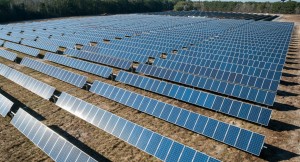Article from the National Law Review, January 17, 2020
As many states see a push for renewable energy opportunities for their customers located in (or scouting new locations in) their borders, West Virginia legislators are poised to decide whether the state will facilitate such development. On January 8, 2020, two House bills were introduced that could open the door to more renewable choices.
House Bill (“HB”) 2911 [SB 611] proposes to allow electric customers to invest in and install renewable and alternative energy sources on their property and ultimately enter into power purchase agreements. Currently, such arrangements are unavailable to individuals and third parties because of the risk of being classified as a “public utility” under West Virginia law. HB 2911 or SB 611 would amend the existing West Virginia Public Utility Commission (“WVPUC”) statute in order to exempt renewable developments on premises of a retail customer that are leased to the customer or that are subject to a power purchase agreement from the definition of “public utility” (removing the WVPUC’s jurisdiction).
HB 3072 seeks to, by way of an entirely new article in the WVPUC statute, allow third parties to enter into power purchase agreements but focuses on solar photovoltaic (PV) installations. HB 3072 details the benefits of allowing power purchase agreements for solar development in West Virginia but defers the specifics of implementation to the WVPUC for rulemaking.
#############################
Power Purchase Agreements (PPAs) help make Solar possible for all
From Jim Kotcon, Conservation Chair, WV Chapter of Sierra Club, February 3, 2020
As the cost of renewable energy resources has plummeted in recent years, more West Virginia communities, families, businesses, and tax-exempt institutions – like schools, churches, nonprofit organizations, and local governments – want to take advantage of these affordable energy options. Power Purchase Agreements (PPAs) are a widely available method to finance distributed energy generation projects. With a PPA, you can purchase solar electricity from a third party provider, instead of dealing with fossil fuel energy from the local utility.
BENEFITS FOR THE TAX-EXEMPT — How exactly do Power Purchase Agreements benefit tax-exempt schools, nonprofits, and municipalities? A PPA developer can take advantage of the federal energy investment tax credit and pass along those savings to tax-exempt customers in the form of lowered energy costs.
WHAT YOU CAN DO — Unfortunately, West Virginia law stops us from entering into PPAs. Bills to make PPAs available in the Mountain State are being considered in the 2020 West Virginia Legislature. The West Virginia Sierra Club urges you to support SB 611, permitting third-party ownership of renewable and alternative energy generating facilities.
Information modified from:
https://www.energyfreedomwv.org/
#############################
Action Alert — WEST VIRGINIA ENVIRONMENTAL COUNCIL — Action Alert
Power Purchase Agreements on Agenda this Wednesday!
We have been working hard to strengthen solar development in West Virginia and are excited to announce that our Senate Bill legalizing on-site Power Purchase Agreements (PPAs) is on the Senate Economic Development agenda this Wednesday afternoon!
SB 611 is a common and powerful way to finance energy projects, like solar arrays!
The bill was introduced and single referenced to the Senate Economic Development Committee. Once passed, it will go straight to the Senate floor. We need your help to convince the committee members to vote YES on the bill …….
See also: https://wvecouncil.org/power-purchase-agreements-on-agenda-this-wednesday/
############################
As Virginia’s schools look to solar, existing VA state law shuts down further development
From an Article by Sarah Vogelsong, Virginia Mercury, January 27, 2020
Since 2013, Virginia has run a pilot program allowing customers to use a financing mechanism known as the power purchase agreement, or PPA, with non-utility solar developers. Under a PPA, a developer installs solar panels on customers’ property and then sells the electricity back to them, usually for less than the utility would.
“PPAs are in a lot of ways a great equalizer,” said Rob Corradi, public affairs adviser for Sun Tribe Solar, one of Virginia’s most active developers in the PPA market and the company behind Middlesex’s solar. They “allow school systems and governments that don’t have access to a lot of capital to be able to access solar at a low cost.”
In Virginia, however, the pilot program came with a major string attached: a 50-megawatt cap on projects in the territory of Dominion Energy, the state’s largest electric utility. Once the State Corporation Commission (SCC) was notified the program had reached that scale, the process would grind to a halt. Unless they were already in the pipeline, no more projects could be developed.
On Jan. 7, a 65-kilowatt project at Chesapeake’s Church of St. Therese finally tripped the wire, bringing the total amount of power committed under the pilot to within 2 kilowatts of the cap — so close, said SCC spokesman Ken Schrad, that “no further notices of intent will be accepted by staff because no particular project would be that small.”
The reaching of the cap was in many ways not a surprise. Bills proposing that the cap be raised had been filed during the 2019 General Assembly. A November report to the governor and the legislature from the SCC had flagged the possibility that the cap would soon be reached and noted that officials “may wish to consider increasing the program limit.” Letters from solar developers warned that already market uncertainty was spreading.
“There’s this huge unmet contracted demand that won’t be built or can’t be built until the cap is raised,” Tony Smith, CEO of solar developer Secure Futures, told the Mercury. “That has ripple effects on the marketplace. Already we’re hearing from public school districts that have requests for proposals (RFP’s) or want to have projects that they’re holding off.”
NOTE: In California, Solar Star 1 and Solar Star 2 are already installed. The first one has a capacity of 314MW and the second one has 265MW. These are the largest in the USA. The Longview solar farm on the Mason Dixon Line (WV & PA) would be 70MW.

